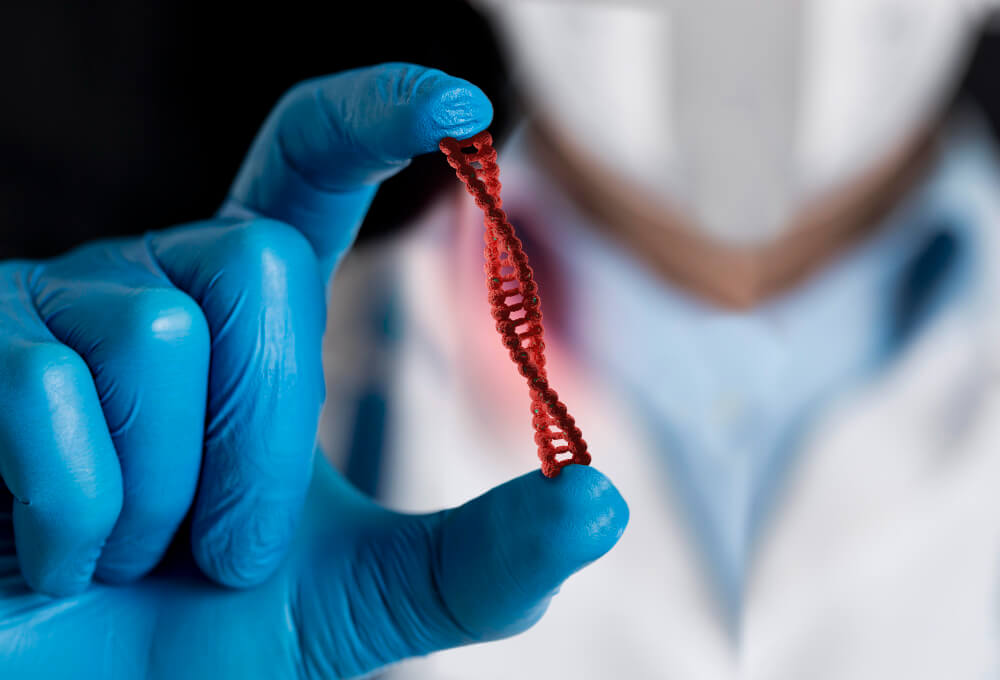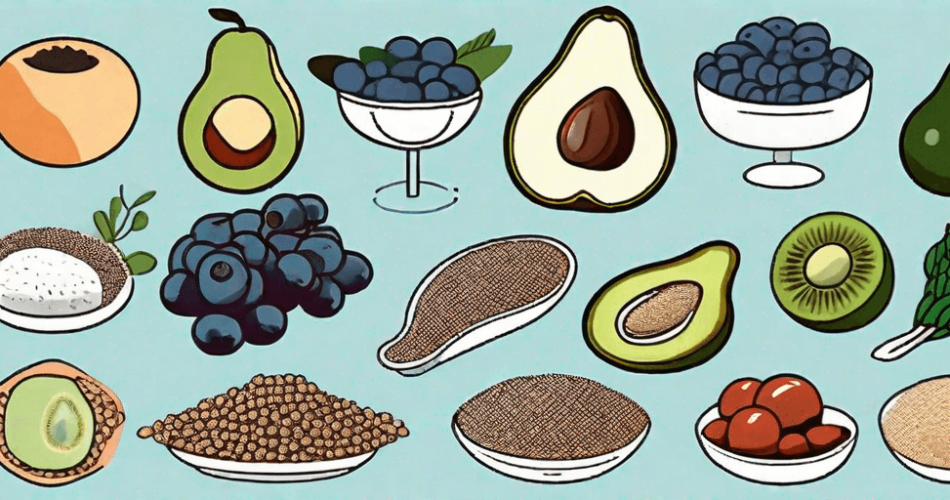Diabetes is a chronic health condition that affects millions of people worldwide. It occurs when the body is unable to properly regulate blood sugar levels, leading to a variety of complications. Understanding the risk factors and causes of diabetes is crucial in order to prevent its onset and live a healthy life. In this article, we will explore the different aspects that contribute to the development of diabetes and shed light on the culprits behind this condition.
Understanding Diabetes: An Overview
Before delving into the risk factors and causes of diabetes, it is important to have a clear understanding of what diabetes actually is. Diabetes is a metabolic disorder characterized by high levels of sugar (glucose) in the blood. This can occur due to insufficient production of insulin, a hormone that regulates blood sugar, or when the body becomes resistant to the effects of insulin.
What is Diabetes?
Diabetes is a condition that affects the way the body processes glucose. Glucose is a vital source of energy for the body’s cells, and insulin is responsible for transporting glucose from the bloodstream into the cells. In individuals with diabetes, this process is impaired, leading to elevated blood sugar levels.
When glucose levels in the blood rise, the pancreas releases insulin to help regulate them. Insulin acts as a key that unlocks the cells, allowing glucose to enter and be used for energy. However, in people with diabetes, the key doesn’t fit properly, and glucose remains trapped in the bloodstream.
Type 1 diabetes is an autoimmune disease in which the body’s immune system mistakenly attacks and destroys the insulin-producing cells in the pancreas. This results in little to no insulin production, leading to high blood sugar levels. Type 1 diabetes is typically diagnosed in childhood or adolescence, and individuals with this condition require lifelong insulin therapy.
Type 2 diabetes, on the other hand, is the most common form of diabetes and is often associated with lifestyle factors such as obesity and physical inactivity. In type 2 diabetes, the body either doesn’t produce enough insulin or becomes resistant to its effects. This means that the cells don’t respond properly to insulin, and glucose remains in the bloodstream instead of being taken up by the cells for energy.
Types of Diabetes

In addition to type 1 and type 2 diabetes, there is also a condition called gestational diabetes that occurs during pregnancy. Gestational diabetes usually develops around the 24th week of pregnancy and is caused by hormonal changes that affect insulin production and utilization. It is estimated that about 7% of pregnant women develop gestational diabetes.
Although gestational diabetes typically resolves after childbirth, it is important to monitor blood sugar levels during pregnancy to prevent complications for both the mother and the baby. Women who have had gestational diabetes are at an increased risk of developing type 2 diabetes later in life.
It is worth noting that diabetes is a chronic condition that requires ongoing management and care. Without proper treatment and lifestyle modifications, diabetes can lead to serious complications such as heart disease, kidney failure, nerve damage, and vision problems.
Understanding the different types of diabetes and how they affect the body is crucial in order to effectively manage the condition and prevent complications. By maintaining a healthy lifestyle, monitoring blood sugar levels, and following a treatment plan prescribed by healthcare professionals, individuals with diabetes can lead fulfilling lives and minimize the impact of the disease on their overall well-being.
The Role of Genetics in Diabetes
While lifestyle factors play a significant role in the development of diabetes, genetics also play a crucial role in determining an individual’s susceptibility to the condition.
Diabetes, a multifaceted disease that affects millions of people worldwide, is influenced by a complex interplay of genetic and environmental factors. Understanding the genetic basis of diabetes is essential for developing effective prevention and treatment strategies.
Hereditary Factors of Diabetes
Research has shown that individuals with a family history of diabetes are at a higher risk of developing the condition themselves. The hereditary nature of diabetes is evident in numerous studies, which have consistently demonstrated the increased susceptibility among those with affected relatives.
Scientists have identified certain gene variants that increase the likelihood of developing diabetes, highlighting the genetic component of this complex disease. These gene variants can impact various aspects of glucose metabolism, insulin production, and insulin sensitivity, ultimately influencing an individual’s risk of developing diabetes.
Moreover, the inheritance pattern of diabetes is not always straightforward. It can be influenced by multiple genes, each with different levels of contribution. This complexity makes it challenging to predict an individual’s risk solely based on family history.
Genetic Mutations and Diabetes

In some cases, diabetes can be caused by specific genetic mutations that impact the production or functioning of insulin. These mutations can disrupt the body’s ability to regulate blood sugar levels, leading to the development of diabetes.
One example of such a genetic mutation is seen in monogenic diabetes, a rare form of the disease. Monogenic diabetes is caused by mutations in a single gene, which can impair insulin secretion or reduce the effectiveness of insulin in the body. Although monogenic diabetes accounts for only a small proportion of all diabetes cases, studying these genetic mutations has provided valuable insights into the underlying mechanisms of the disease.
Furthermore, research has also identified several genes associated with type 1 and type 2 diabetes. These genes contribute to the overall risk of developing diabetes and interact with environmental factors to influence disease progression. Understanding the specific genetic variations associated with diabetes can help in identifying individuals who may benefit from early interventions or personalized treatment approaches.
As our understanding of the genetic basis of diabetes continues to expand, researchers are working towards developing targeted therapies that can address the specific genetic factors contributing to the disease. By unraveling the intricate genetic landscape of diabetes, we hope to pave the way for more precise and effective management strategies.
Lifestyle Factors Contributing to Diabetes
While genetics may predispose individuals to diabetes, lifestyle factors play a critical role in its development. Making healthier choices can significantly reduce the risk of developing diabetes.
Diabetes is a complex disease that is influenced by various lifestyle factors. One of the most important factors is diet. Poor dietary choices, such as excessive consumption of sugary and processed foods, can contribute to the development of diabetes. When we consume these types of foods, our blood sugar levels spike, putting a strain on our pancreas to produce insulin. Over time, this can lead to insulin resistance, a condition in which our cells become less responsive to insulin. Insulin resistance is a hallmark of type 2 diabetes, the most common form of the disease.
It’s not just the quantity of food that matters, but also the quality. A diet high in refined carbohydrates and unhealthy fats can lead to weight gain and insulin resistance, increasing the risk of developing type 2 diabetes. On the other hand, a diet rich in whole grains, fruits, vegetables, lean proteins, and healthy fats can help regulate blood sugar levels, maintain a healthy weight, and reduce the risk of diabetes.
The Impact of Diet on Diabetes Risk

Poor dietary choices are not the only lifestyle factor that contributes to the risk of developing diabetes. Physical inactivity is another significant risk factor. In today’s modern society, sedentary lifestyles have become the norm. Many of us spend hours sitting at desks or in front of screens, with little to no physical activity. This lack of movement can have detrimental effects on our health, including an increased risk of diabetes.
Regular exercise is crucial for maintaining a healthy weight, improving insulin sensitivity, and reducing the risk of developing type 2 diabetes. When we engage in physical activity, our muscles use glucose as fuel, helping to regulate blood sugar levels. Exercise also helps to build and maintain muscle mass, which can improve insulin sensitivity and enhance our body’s ability to utilize glucose effectively. The American Diabetes Association recommends engaging in at least 150 minutes of moderate-intensity aerobic activity per week to prevent the onset of diabetes.
In addition to aerobic exercise, strength training is also beneficial for diabetes prevention. Resistance exercises, such as lifting weights or using resistance bands, can help build muscle and improve insulin sensitivity. Combining both aerobic and strength training exercises into your routine can provide maximum benefits for diabetes prevention.
It’s important to note that lifestyle factors, such as diet and physical activity, are within our control. By making conscious choices to eat a healthy diet and engage in regular exercise, we can significantly reduce our risk of developing diabetes. Small changes in our daily habits can have a big impact on our long-term health.
Medical Conditions Associated with Diabetes
Diabetes is often linked to various medical conditions that can further complicate the management of the disease. It is important to understand these associations in order to effectively address the challenges posed by diabetes.
The Link Between Obesity and Diabetes
Obesity is a major risk factor for developing type 2 diabetes. Excess body fat can lead to insulin resistance, where the body’s cells become less responsive to insulin. This can result in elevated blood sugar levels and the development of diabetes.
Furthermore, obesity is not just a cosmetic issue; it is a complex medical condition that can have serious implications for overall health. In addition to increasing the risk of diabetes, obesity is associated with a higher likelihood of developing heart disease, stroke, certain types of cancer, and other chronic conditions.
Managing obesity is therefore crucial for reducing the risk of obesity-related diabetes. This involves adopting a holistic approach that encompasses a balanced diet, regular physical activity, and behavior modifications. By achieving and maintaining a healthy weight, individuals can significantly reduce their chances of developing diabetes and improve their overall well-being.
Other Health Conditions that Increase Diabetes Risk

Several other medical conditions, such as high blood pressure and abnormal cholesterol levels, are associated with an increased risk of developing diabetes. These conditions often coexist with diabetes and can exacerbate complications, making it crucial to manage them effectively.
High blood pressure, or hypertension, is a condition characterized by elevated blood pressure levels. It can damage blood vessels and organs over time, increasing the risk of heart disease, stroke, and kidney problems. When combined with diabetes, high blood pressure can further strain the cardiovascular system, leading to a higher risk of heart attacks and strokes.
Similarly, abnormal cholesterol levels, particularly high levels of LDL cholesterol (commonly known as “bad” cholesterol) and low levels of HDL cholesterol (commonly known as “good” cholesterol), can contribute to the development of cardiovascular diseases. When these conditions coexist with diabetes, the risk of heart disease and other complications becomes even more pronounced.
Managing these health conditions requires a comprehensive approach that includes lifestyle modifications, such as adopting a heart-healthy diet, engaging in regular physical activity, and taking prescribed medications. By effectively managing these conditions, individuals can minimize the risk of diabetes-related complications and improve their overall health outcomes.
In conclusion, diabetes is often accompanied by various medical conditions that can complicate its management. Understanding the associations between diabetes and obesity, high blood pressure, abnormal cholesterol levels, and other health conditions is essential for developing comprehensive treatment plans. By addressing these conditions holistically, individuals can reduce the risk of complications and improve their overall quality of life.
Environmental Factors and Diabetes
In addition to genetic and lifestyle factors, certain environmental factors can influence the development of diabetes.
The Role of Stress in Diabetes Development
Chronic stress has been linked to an increased risk of developing type 2 diabetes. Stress hormones can interfere with insulin production and promote inflammation, contributing to the development of the disease. Finding healthy ways to manage stress, such as practicing mindfulness and engaging in stress-reducing activities, can help mitigate this risk.
Impact of Pollution and Toxins on Diabetes Risk
Studies have suggested a potential link between exposure to environmental pollutants and an increased risk of diabetes. Air pollution, chemicals in household products, and certain occupational hazards may contribute to the development of the disease. Minimizing exposure to pollutants and adopting a cleaner lifestyle can be a proactive step in reducing the risk of diabetes.
Ready to make a real change? Book your appointment with a NowServing diabetes specialist by clicking here. Secure your health’s future today, because when it comes to managing or preventing diabetes, early action is your best defense.
Diabetes Awareness Quiz
Test your knowledge about the causes and risk factors of diabetes



